International Women’s Day 2018: What it’s like to be a lesbian in the UK
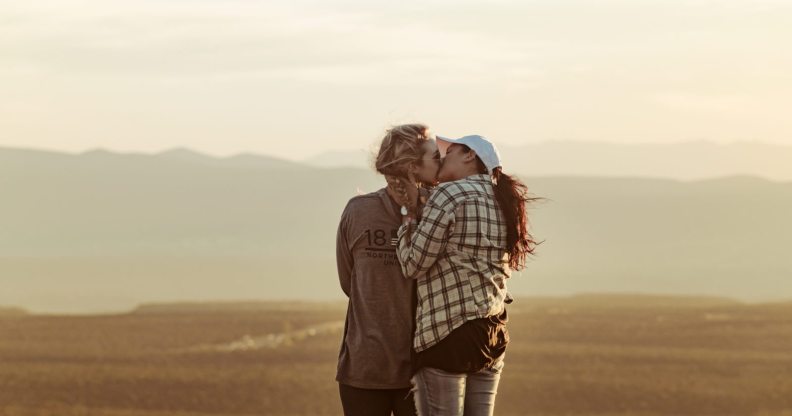
What is it like to be a lesbian in a patriarchal world, and in a world where the LGBT+ community tends to be represented by a gay man?
How does it feel to be a lesbian woman when the little representation you have is fetishised for the male gaze, or flung into a paradigm of femmeness or butchness in order to be accepted?
In a celebration of International Women’s Day, these lesbians have spoken to us about what it means to be a gay woman in the UK today.
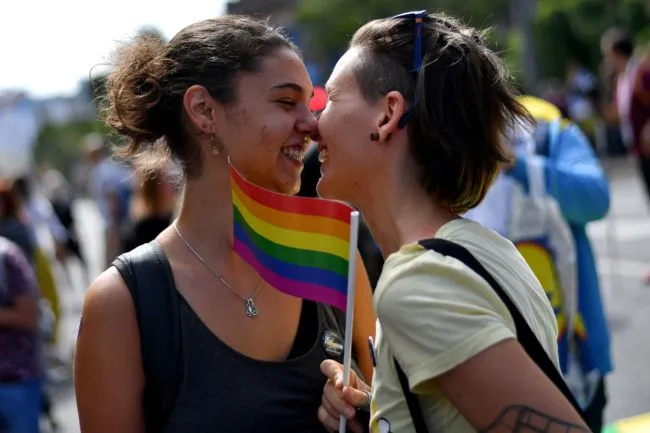
(Getty)
Luisa:
I think that when lesbians are portrayed in the media, they’re not often represented that well. Let’s look at Orange Is The New Black and Wentworth – a lot of lesbians… but they’re all in prison.
As well as this, when there are lesbians, they seem to be portraying a male ideal of what a lesbian should be, rather than accurately portraying real life lesbians, like OMG, some of us have short hair and wear guys clothes – shock horror.
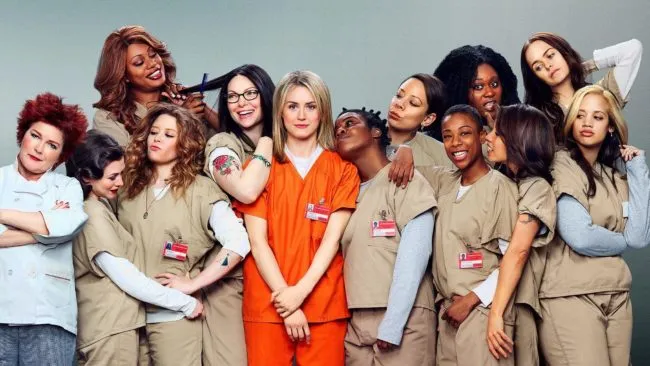
Alice:
In a movement where identity is celebrated and explored I find it really, really frustrating that in the media, lesbians are either presented as entirely over-sexualised or stereotypically butch.
Why aren’t books about lesbian relationships in the mainstream media? Why aren’t films? Of course, that extends to other LGBTQ+ identities, too.
Sexuality should never, ever be presumed. Just because I don’t ‘look’ how a heterosexual individual might expect a lesbian to look – in their socially-ingrained perceptions of gay women’s appearances – doesn’t make my experience of being one any less valid. In fact, it means more effort needs to be made to educate the heterosexual community that a stereotype is just that.
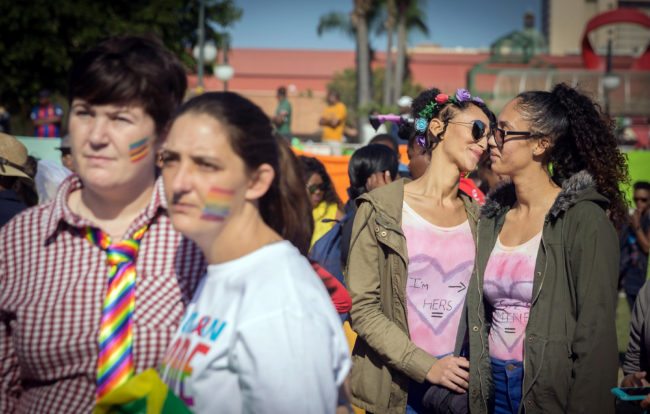
(Getty)
I think that the word ‘gay’ is synonymous with ‘male’. Like, gayness is more accepted if it’s male. Given the fact that male privilege is still rife, it means lesbians have to work even harder to get equal representation and equal standing. But I’ve found men in the community have always been really supportive.
Also I find it THE most insulting thing when people say my girlfriend and I look the same. It is so fucking rude. We both have long brown hair but ffs stop trying to make it like I’m a lesbian who looks like a straight girl who’s dating another lesbian who looks like a straight girl who also looks like herself.
I think we need to do more to champion all LGBTQ+ identities. To achieve that, hard work is needed from both within the community itself, as well as outside of it.
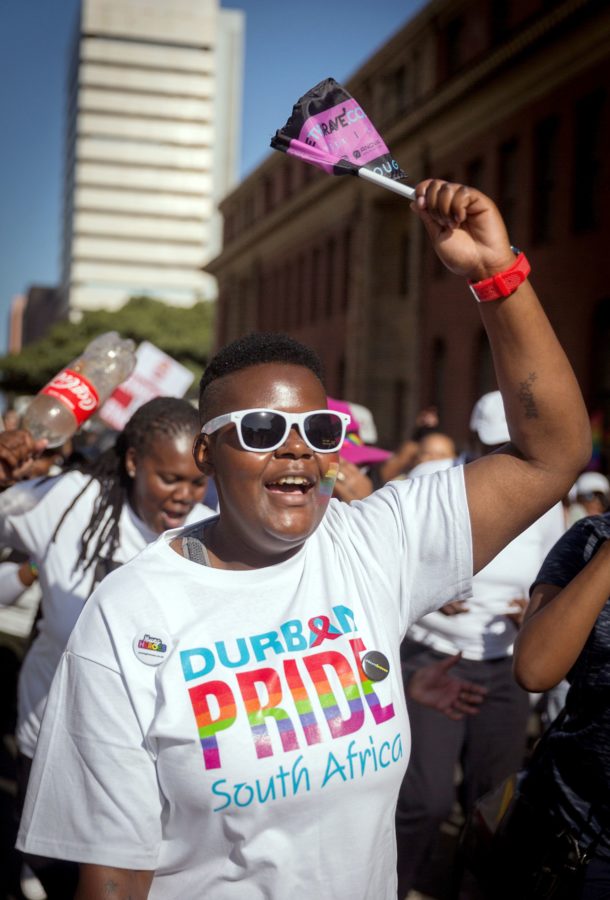
(Getty)
Miki:
Adverts that have femme presenting people kissing, holding hands. Sometimes without them being the sole reason for the advert, it’s more effective, like a little nod to the fact women that love women actually exist.
I came out almost 10 years ago to my friends that is, and there wasn’t really any lesbian people in the media, there didn’t appear to be many lesbians at pride, and not in pride advertisement and there was this awful stigma of what lesbians were and how they dress/present – which to be fair i don’t think has changed that much.
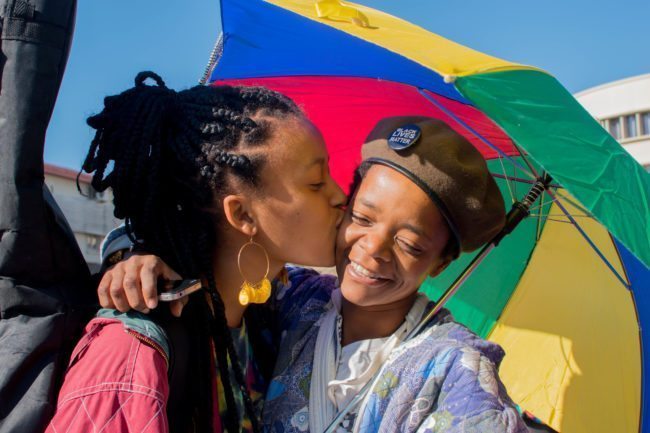
(Getty Images)
I think there’s the constant pressure to act in a certain way, and not being ‘gay enough’ – I can’t count how many times infront of me that someone has questioned the ‘gayness’ of my girlfriend because she’s more feminine than me, but also how many times I’ve been mistaken for a man because i wear suits to work.
There’s things that are subtle, but affect me personally so much, like whenever the conversation of having kids comes up that i’m not the ‘right one’ to have our children, in the sense that of course my girlfriend will have them because she’s more feminine.
Also in terms of the actual ‘scene’ – i think there is a huge problem around sexual harassment, gay men assuming they have the right to touch women is not a thing of the past, it very much happens now, and also – women knowing how to treat other women, there’s a lot of pressure on the scene to ‘hook up’ which leaves a lot of people feeling vulnerable.
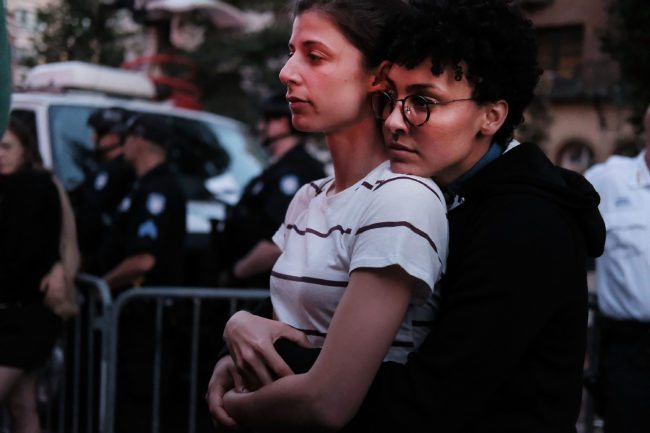
(Getty Images)
I have never been so disgusted in my life than the conversation around ‘political lesbians’ and how the lesbian movement is historically transphobic. That may have been the case for some TERFS and the assumption that because a lesbian is butch or masc/androgynous presenting that they are transphobic and there is a TERF movement that perpetrates that.
There is an endless problem in the community internally around internal homophobia, with people thinking you aren’t a fully fledged lesbian if you aren’t ‘gold star’ that you aren’t “gay enough” if you don’t fit into the narrow stereotypes.
I’d love to see more lesbian nights and more inclusive of women events. Even the bartenders in bars tend to be men with a certain body type topless as opposed to any type of women.
If film and TV shows could stop killing all the lesbians too that would be great, and sexing up lesbians as well, making lipstick lesbians more pronounced and bull dykes but non of the scope in-between is damaging. There are more lesbians in the world than meets the eye.
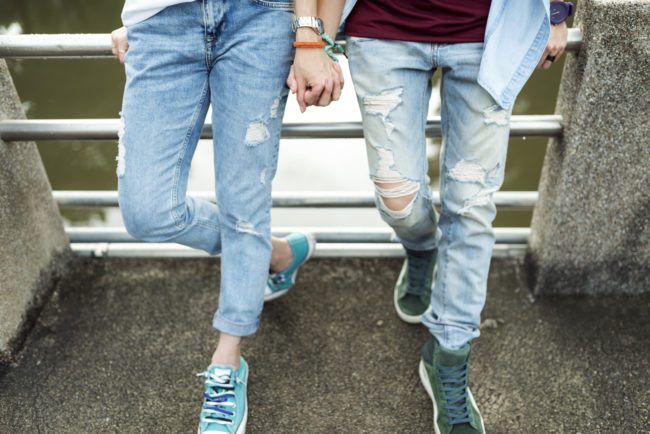
(RawPixel)
Laura:
“I often feel like lesbians are forgotten in the LGBT+ movement, especially in the media.
For example, if a film contains a female-female romantic storyline, it’s often referred to as a “queer storyline” but the same isn’t said for male-male (gay storyline instead).
If you look at mainstream films containing a lesbian relationship, they’re portrayed as “secret” and something that is against the norm e.g. Carol in Disobedience. San Junipero was the nearest we’ve come and perhaps ‘Everything Sucks!’ for how well it portrayed a lesbian’s coming of age story.
Forgetting and excluding lesbians also extends to LGBT+ culture itself. A lot of gay bars/clubs are packed full of men, while femme-presenting women are not allowed in because they “look too straight”. We’re unable to take part in these areas of LGBT+ culture and have to resort to going to lesbian-only nights.

